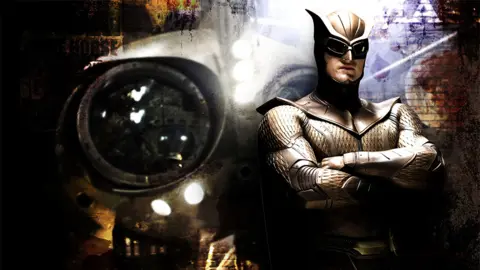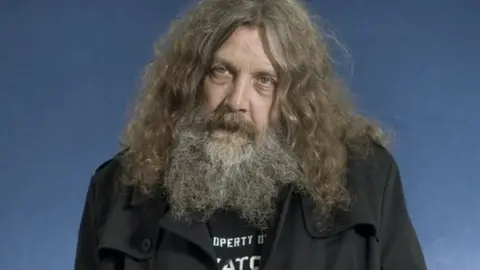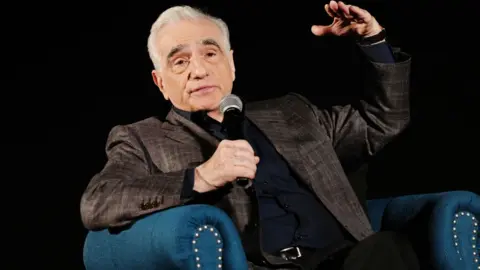Watchmen creator Alan Moore: Modern superhero culture is embarrassing
 Alamy
AlamyIs it embarrassing for adults to like superheroes?
According to Alan Moore - creator of the Watchmen series and widely considered one of the greatest comic book writers - it is.
He says superheroes are perfectly fine for 12 or 13-year-olds but adults should think again.
"I think the impact of superheroes on popular culture is both tremendously embarrassing and not a little worrying," he says.
Alan wrote Watchmen in 1986. The series depicts an alternate history where superheroes emerged in the 1940s and 1960s and their presence changed the course of history.
He believes the characters are "perfectly suited" to the imaginations of a younger audience - but now, they serve a "different function, and are fulfilling different needs".
The writer claims adults enjoy superhero films because they don't wish to leave their "relatively reassuring childhoods" behind, or move into the 21st century.
 Getty Images
Getty ImagesThe comments were made in a 2017 interview with Brazilian newspaper Folha de São Paulo - the full details of which have only just been released.
He adds the popularity of the genre among adults suggests a "kind of deliberate, self-imposed state of emotional arrest".
And his criticism extends to creators.
He says superheroes are written and drawn by people who've never stood up for their own rights against the companies that employ them - saying they appear "to be largely employed as cowardice compensators".
He claims the lack of diversity in the comic book world suggests books and iconic characters are "still very much white supremacist dreams of the master race".
But there was praise from Marvel fans earlier this year, with the announcement that the next stage of the Marvel Cinematic Universe will feature its first deaf superhero, its first Asian-American superhero and an openly gay superhero.
Debate around the genre is pretty hot right now.
 Getty Images
Getty ImagesIn an interview with Empire, film director Martin Scorsese was asked about Marvel movies - and he argued they should be considered something other than cinema.
"I don't see them," he said.
"I tried, you know? But that's not cinema. Honestly, the closest I can think of them, as well made as they are, with actors doing the best they can under the circumstances, is theme parks. It isn't the cinema of human beings trying to convey emotional, psychological experiences to another human being."


